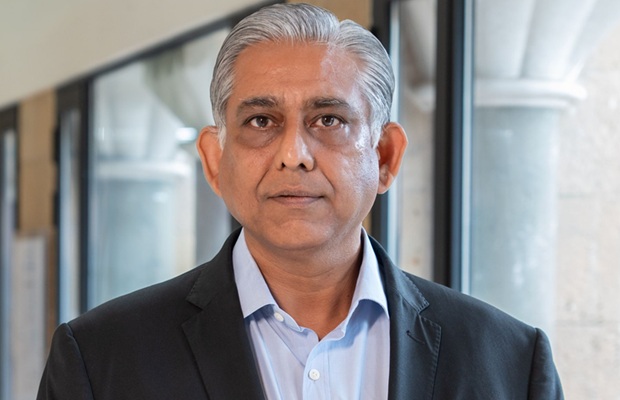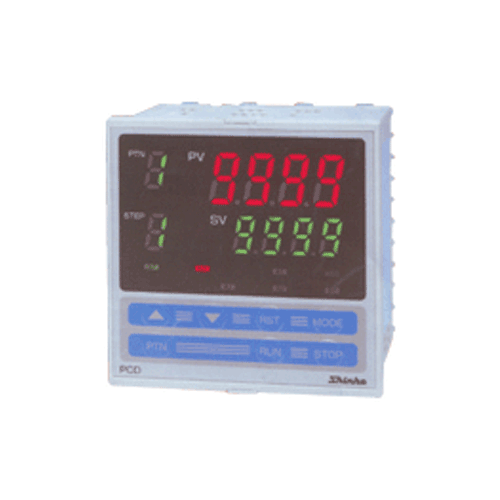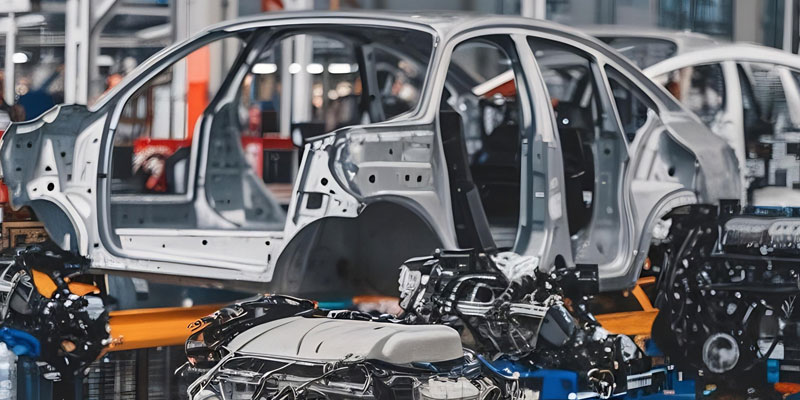Schedule a Call Back
At Thermax, we are building next-gen captive plants: Kirtiraj Jilkar
 Interviews
Interviews- Apr 21,25

What role do you see EPC companies like Thermax playing in enabling the shift toward cleaner energy systems?
India’s energy transition requires not only policy interventions and investments in new technologies, but also strong on-ground execution. This is where EPC companies like Thermax play a pivotal role. Our strength lies in seamlessly bridging engineering expertise, advanced technologies, and end-to-end project execution. We don’t just deliver services at Thermax—we enable meaningful energy transitions across industries. Whether it’s a greenfield captive power plant, a retrofit for flue gas desulfurisation, a waste to energy plant or a hybrid energy system combining biofuels and renewables, we design and deliver with sustainability at the core. We integrate complex systems with seamless solutions within required timelines, cost, and quality, which is essential for clients under pressure to meet global ESG benchmarks and comply with evolving regulatory frameworks. In that sense, our work is not just technical; it is also strategic. Our solutions are helping industries to reimagine their energy systems from the ground up.
How are large-scale industrial projects evolving today to align with sustainability goals and global climate mandates?
There’s a significant shift underway in how industrial projects are conceptualised and executed. 5-10 years ago, the focus of industrial projects was output and efficiency. Today, that equation has expanded to include carbon impact, compliance with global standards. We’re seeing a growing demand for decarbonised systems plants that are capable of operating on multiple fuels, including renewables and bio-based alternatives. There is a growing emphasis on sustainable practices such as waste heat recovery, zero liquid discharge, and the utilisation of industrial by-products for energy generation. Technologies like flue gas desulfurisation (FGD) and carbon capture are no longer considered peripheral enhancements—they are increasingly integral to core plant design, driven by tightening environmental regulations and heightened ESG commitments.
Thermax has been exploring ethanol, methanol, and hybrid energy solutions. What are the key opportunities and challenges in scaling these alternatives for industrial use?
We at Thermax are actively developing turnkey solutions that enable industrial-scale production and utilisation of ethanol and methanol. This includes upstream production systems, downstream chemical processing, and the full lifecycle integration into industrial plants. We are also exploring advanced technologies like gasification to produce methanol, Di Methyl Ether (DME) and Ethanol from coal or biomass aligned with India’s roadmap for cleaner industrial fuels.
However, the transition to biofuels is not without challenges. Feedstock availability and consistency is a significant concern. Infrastructure for distribution and storage is still in development. On the industrial side, adapting existing systems to accommodate new fuels often requires retrofitting or entirely new plant configurations.
The good news is that we are addressing many of these barriers through innovation and partnerships. We’re working with government platforms such as the Biofuels Alliance and engaging with both public and private sector players to pilot scalable solutions. Our in-house R&D teams are also optimising processes to make biofuel production more cost-efficient and less water intensive.
In your view, how can industries effectively optimise their power consumption while also reducing emissions and maintaining operational efficiency?
Optimising energy consumption while ensuring operational efficiency and emissions control is a strategic imperative. Industrial are expected to reduce their carbon footprint without compromising productivity. This requires a holistic approach.
One effective strategy is adopting Energy Management Solutions (EMS). At Thermax, our EMS offerings involve a comprehensive audit of existing plants, examining energy flows, load patterns, and inefficiencies. Based on this, we offer retrofit solutions. This approach not only de-risks the investment but ensures measurable impact.
Digitalisation enhances this further through smart sensors, IoT-enabled controls, and predictive analytics, which identify inefficiencies, forecast maintenance, and optimise fuel use and emissions. Coupled with process integration like co-generation and heat recovery, this significantly lowers energy intensity.
We also support the shift to hybrid systems, combining solar or biomass with conventional energy sources to manage peak demand and ensure reliability. These solutions deliver both environmental and economic benefits, especially for energy-intensive industries like cement, steel, and chemicals.
How do you see the future of captive power plants evolving—particularly with the advent of renewables and storage technologies?
With the rapid growth of renewables and storage technologies, the very concept of captive power is being redefined. The future lies in hybrid captive plants facilities that integrate multiple energy sources including solar, biomass, waste-to-energy, and conventional fuels with advanced storage solutions. These plants provide the flexibility to switch fuels while maintaining consistent power quality and reliability.
At Thermax, we are building next-gen captive plants that not only deliver energy independence but also meet stringent emissions norms. These plants are equipped with smart controls, fuel-flexible boilers, and emission monitoring systems. We also design them to be modular and scalable, allowing customers to add new technologies such as green hydrogen or carbon capture as they become commercially viable.
Energy storage is another game-changer. With battery prices falling and technology improving, industrial users can now store excess renewable energy generated during the day and use it during peak hours or outages. This reduces dependence on the grid, improves power quality, and contributes to sustainability targets.
How is Thermax integrating smart technologies into its energy projects to enhance performance, compliance, and lifecycle efficiency?
We are embedding smart technologies across the entire project lifecycle from design and commissioning to operations and maintenance. Our digital framework includes advanced process simulations, digital twins, and IoT-based monitoring systems. This allows us to anticipate operational bottlenecks, optimise fuel consumption, and ensure that performance metrics are met or exceeded. For instance, our smart dashboards provide real-time visibility into emissions, energy usage, and equipment health, enabling predictive maintenance and reducing downtime.
We are also leveraging AI and machine learning algorithms to improve control logic, enhance energy efficiency, and identify optimisation opportunities that might otherwise go unnoticed. These technologies help us not just meet regulatory compliance but also ensure long-term performance reliability for our clients.
What are the upcoming focus areas, innovations, or regions that you’re targeting in your future roadmap?
Thermax’s P&ES division is focusing on driving technology led and sustainability solutions as industries transition toward low-carbon operations. Key areas include waste to energy and refinery processes, and emerging technologies like biofuels and carbon capture. We are also advancing digital solutions with EDGELive™ and Value-Added Services (VAS) to help customers enhance performance, optimise energy use, and improve reliability.
Geographically, while India and Southeast Asia remains a core market, we’re expanding into the Middle East, and Africa, where industrial growth and clean energy adoption are accelerating. Additionally, we see strong potential in sectors like biofuels, green hydrogen, and sustainable chemicals, where integrated, clean process solutions are in demand. These focus areas align with our vision of supporting industries in their energy transition while delivering operational and environmental value.
What is your broader outlook on India's industrial decarbonisation journey?
India’s industrial decarbonisation journey is gaining strong momentum, driven by policy initiatives, global climate commitments, and rising awareness among industries. Sectors are actively seeking cleaner, more efficient technologies to reduce emissions while maintaining competitiveness. The shift towards renewable energy, waste heat recovery, biofuels, and CO2 capture is expected to accelerate in the coming years.
Thermax is well-positioned to support this transition with integrated, sustainable solutions tailored to diverse industries. We’re partnership with world class technology providers biofuels and CO2 capture technologies, and digital asset management platforms. Our focus is on enabling customers to optimise energy use, lower carbon footprints, and build long-term operational resilience. By combining engineering expertise with emerging technologies, we aim to be a key partner in helping industries meet their sustainability goals while ensuring reliable and efficient operations.
Related Stories

Engineering India’s Next Phase of Growth with Responsibility: Amit Sharma
Amit Sharma, MD and CEO, Tata Consulting Engineers (TCE), outlines TCE's strategy to support India’s next phase of industrial growth through integrated engineering, nuclear and digital capabilitie..
Read more
The role of risk management in large projects
Risk is inseparable from project management, particularly in large and long-duration projects, where inadequate risk identification, ownership and follow-up often lead to cost and time overruns. Pra..
Read more
India EV Battery Demand to Surge 14-Fold by 2032: CES Report
CES says India’s EV battery demand may rise from 17.7 GWh in 2025 to 256.3 GWh by 2032, driven by electrification, new models, fuel prices and policy support shaping growth over next seven years t..
Read moreRelated Products

Programmable Controllers - Pcd-33a Series
Pro-Med Instruments (P) Ltd offers a wide range of programmable controllers - PCD-33A Series.

Gasket Graphite Powder
Arihant Packing & Gasket Company offers a wide range of gasket graphite powder.
Asahi Kasei expands 3D printing filament sales in North America
Asahi Kasei, a leading resin and compounding technology provider, has initiated the sales of 3D printing (3DP) filaments in North America through Asahi Kasei Plastics North America (APNA). The soft la Read more














